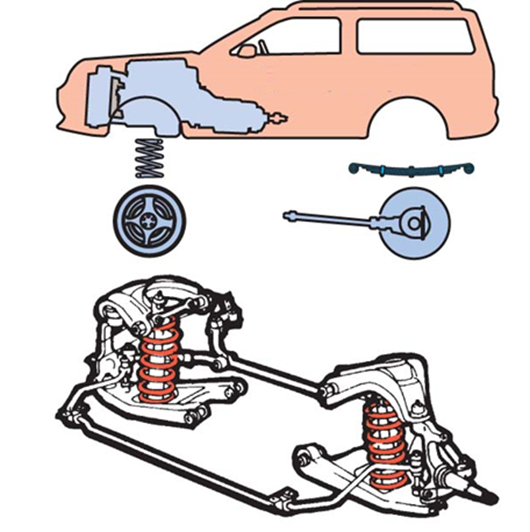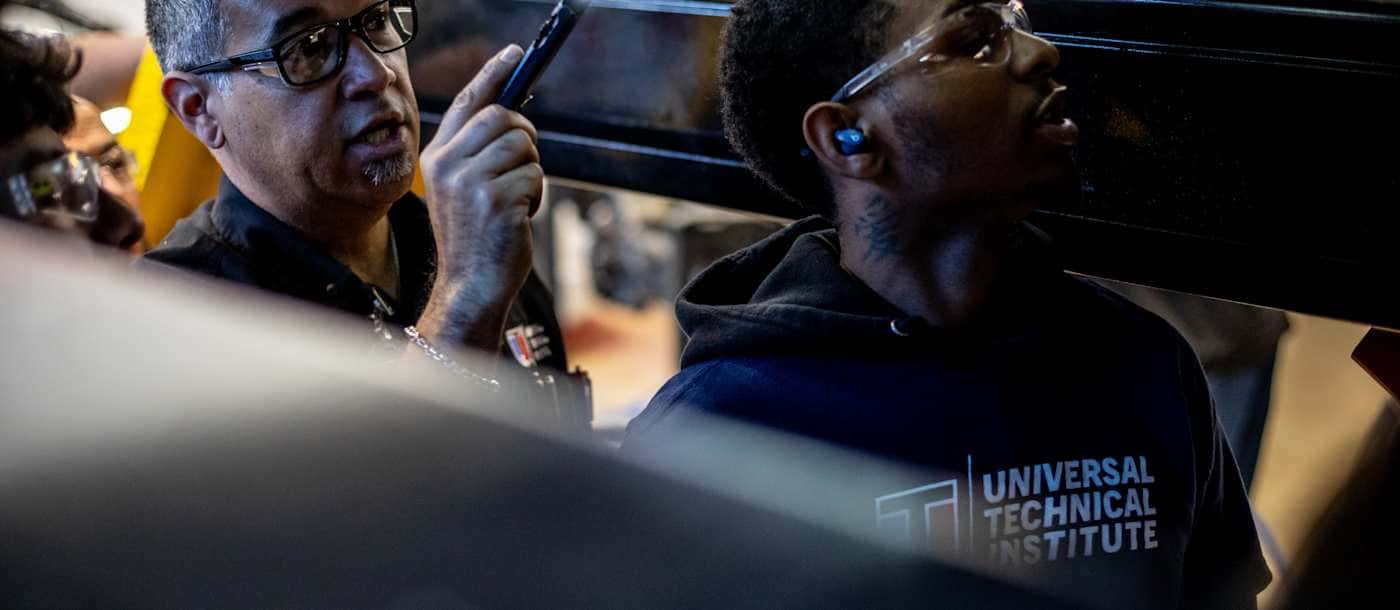UTI’s undercar systems course, Introduction to Automotive Physical Science: Undercar Systems, is designed to give students a strong understanding of the scientific principles and practical skills required to diagnose and service automotive undercar systems.1
This course is only included at campuses offering the Automotive & EV Technology and Automotive/Diesel & EV Technology programs.
What You'll Learn in the Undercar Systems Course
With a focus on the physics and mechanics behind braking systems, this course prepares students to handle real-world challenges in maintaining and repairing one of the most critical safety features in any vehicle.

Topics focused on in this course include:
Hooke’s Law and Its Application
Students will explore Hooke’s law, a principle of elasticity, and how it applies to automotive components like suspension springs and brake systems. This understanding is crucial for diagnosing issues related to material stress and deformation.
Transformation of Kinetic to Thermal Energy
The undercar systems class dives into the science of how braking systems convert kinetic energy into thermal energy to slow and stop a vehicle. Students are taught how this process impacts brake system performance and the importance of heat dissipation.
Pascal’s Law of Hydraulics
A key focus of the course is Pascal’s law, which explains how hydraulic pressure is distributed within brake systems. Students will gain hands-on training in diagnosing and servicing hydraulic components such as brake lines, calipers and master cylinders.18
Brake Fluid Properties
Students will study the chemical and physical properties of brake fluids, including viscosity, boiling points and moisture absorption. This knowledge helps ensure safe and effective brake operation under various driving conditions.
Diagnosing and Servicing Undercar Systems
Hands-on training emphasizes the practical application of scientific principles in diagnosing and servicing undercar systems. Students are taught to identify wear and tear, troubleshoot performance issues and make precise repairs to restore functionality.
Mastering Diagnostic Tools and Techniques
The course introduces students to industry-standard tools and diagnostic methods, ensuring they are equipped to efficiently test and repair brake systems and other undercar components.
Learn All About Automotive Undercar Systems at UTI!
The brake system in a vehicle is one of its most important safety features. Students will learn about key topics and repair guidelines for this system during this course.
To learn more about this course and the Automotive Technology program, request info or contact an Admissions Rep at 1-800-834-7308.
Frequently Asked Questions
An automotive undercar specialist focuses on diagnosing, repairing, and maintaining the components located beneath a vehicle. This includes critical systems such as brakes, steering, suspension, and drivetrain components.
Students focus on how to diagnose and service automotive undercar systems using principles and theories of physical science. Hooke’s law, Pascal’s law of hydraulics, transformation of kinetic to thermal energy and brake fluid properties are some of the topics covered.
Yes, the course includes comprehensive training on diagnosing and servicing steering, suspension and brake systems. Students learn to apply physical science principles to real-world scenarios, enabling them to effectively troubleshoot and repair issues related to these critical vehicle systems.
While the Automotive Undercar Systems course focuses on the scientific principles behind undercar systems, students also gain hands-on training using equipment such as wheel balancers, tire machines, vehicle hoists and brake lathes.
Yes, the Automotive Undercar Systems course is an integral part of UTI's core Automotive Technology program. This foundational course equips students with essential knowledge and skills that are crucial for advanced training and specialization in the automotive field.

